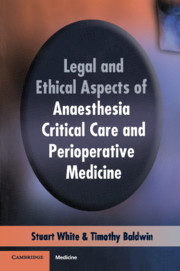Book contents
- Frontmatter
- Contents
- 1 Introduction
- 2 An introduction to the UK legal system
- 3 An introduction to medical ethics
- 4 Rights, and the Human Rights Act, 1998
- 5 Consent
- 6 Negligence
- 7 Confidentiality, and access to medical records
- 8 Abortion
- 9 Products liability
- 10 Research
- 11 Death and organ procurement
- 12 Professional regulation
- 13 Resource allocation
- Appendix: Important legal cases
- Index
7 - Confidentiality, and access to medical records
Published online by Cambridge University Press: 18 August 2009
- Frontmatter
- Contents
- 1 Introduction
- 2 An introduction to the UK legal system
- 3 An introduction to medical ethics
- 4 Rights, and the Human Rights Act, 1998
- 5 Consent
- 6 Negligence
- 7 Confidentiality, and access to medical records
- 8 Abortion
- 9 Products liability
- 10 Research
- 11 Death and organ procurement
- 12 Professional regulation
- 13 Resource allocation
- Appendix: Important legal cases
- Index
Summary
‘What I may see or hear in the course of the treatment or even outside of the treatment in regard to the life of men, which on no account one must spread abroad, I will keep to myself, holding such things shameful to be spoken about’
– the Hippocratic Oath‘Patients have a right to expect that doctors will not disclose any personal information which they learn during the course of their professional duties, unless they give permission’
– General Medical Council (GMC), ‘Duties of a Doctor’Modern medical practice is founded on the concept of respecting patient autonomy, which in part includes respecting the right of an individual to determine what personal information may or may not be divulged to a third party. Unwarranted disclosure of a patient's medical treatment, advice or medical records is regarded as breach of their personal integrity. In essence, confidentiality protects the patient's informational autonomy.
The concepts of confidentiality and privacy are inter-related, but they are not identical. Privacy is generally viewed as an individual right, whereas confidentiality is considered an interest but not necessarily an individual right.
The major ethical theories accommodate the notion of confidentiality. Deontology envisages confidentiality as a moral duty, but accepts that breaching confidentiality may be ethically acceptable if there is a more pressing duty to disclose information. Utilitarianism supports confidentiality if it promotes the best consequences, but obviously allows for breaches of confidentiality if the greater good is best served by disclosure.
- Type
- Chapter
- Information
- Publisher: Cambridge University PressPrint publication year: 2004



